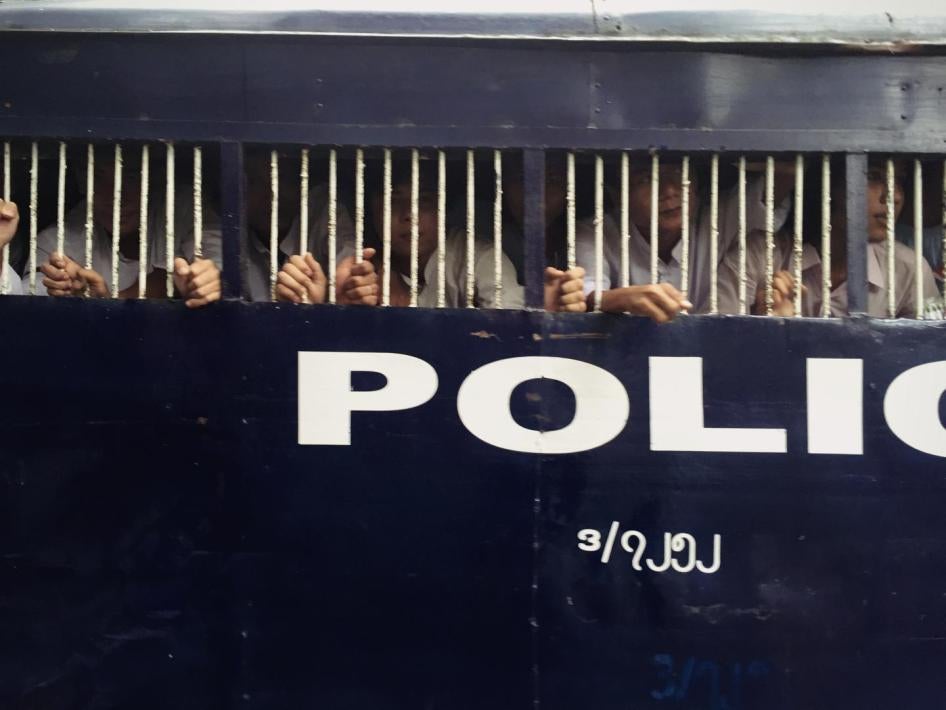In March, more than 100 students were arrested in the central Burmese town of Letpadan after staging peaceful protests against Burma’s new education law and its restrictions on academic freedom. Seven months later, 62 of them still sit in jail. Last Tuesday police vans brought the large group from Tharrawaddy prison to the nearby district courthouse in Pegu Region, where the criminal proceedings have stalled as they await the transfer of their cases to the regional court.
Dressed in white tops, a nod toward the Burmese student uniform, the detainees met with family and supporters through the early afternoon, sharing updates and enjoying treats brought in for the day – daily newspapers, stir-fried rice, smartphones. If convicted, they face up to nine and a half years in prison.
They were students of law, political science, mathematics, engineering, and international relations when the protests started, halting their educations and escalating toward a violent crackdown by police. Though they organized on a platform of education reform, the protesters have now become symbols of the government’s reignited suppression of peaceful activism and a reminder of student groups’ longstanding role as leaders in the pro-democracy movement.
Gathered in the courtroom, the students said they drew strength from their awareness of this mantle. They told me stories about prison visits from former students-turned-political prisoners of the historical uprisings of 1988, 1996, and 2007. A group of about 20 teenagers, ages 14 to 17, lined the courtroom in solidarity, wearing All Burma Federation of Student Unions t-shirts. “They are the new generation,” said Honey Oo, a detained student leader and once one of Burma’s youngest political prisoners, jailed from 2008 to 2012 for protesting military rule.
Student activism’s deep roots in Burma have long reflected the lack of avenues for reform within the country’s authoritarian political system. For decades, activists have been forced to seek alternative routes to having their voices heard.
The government’s silencing of these students’ calls for educational reform has left them further disillusioned with the country’s so-called democratic transition. When the six detained female prisoners were offered the chance to place advance votes for the November 8 elections, only two registered. Those who refused cited their mistrust in the authorities’ handling of advance voting, a process which in the 2010 elections was reportedly plagued by misconduct and ballot stuffing. “I don’t want to support a one-sided competition,” one of the students said. “I think these elections are not free and fair.”
Asked if she would continue to protest once freed, however, she responded, “Of course, I have to. If I don’t do, who will? This is not a time to wait for a hero.”








